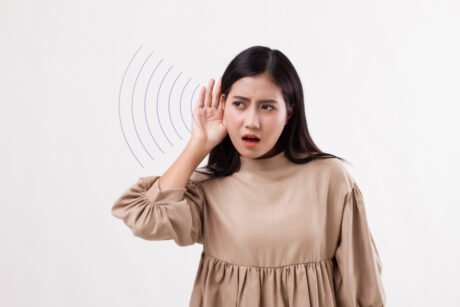Have you ever experienced a feeling of fullness in your ear, like it’s plugged up? Or perhaps your hearing seems muffled, and sounds are distorted? This could be due to a build-up of ear fluid, a common condition that affects people of all ages. Ear fluid can manifest in various ways, including a feeling of fullness, muffled hearing, an itchy ear canal, and even drainage from the ear. However, it’s important to remember that excess ear fluid is often a symptom of an underlying condition rather than a problem in itself.
Common Causes of Ear Fluid
Several factors can contribute to the buildup of fluid in the ears. Here are some of the most common culprits:
- Ear Infections: A middle ear infection, also known as otitis media, is a common cause of excess ear fluid. These infections cause inflammation and fluid accumulation behind the eardrum. Ear infection symptoms can include pain, fever, and irritability.
- Eustachian Tube Dysfunction: The Eustachian tube connects the middle ear to the back of the throat, helping to regulate pressure and drain fluid. When this tube becomes blocked due to allergies, colds, or sinus infections, fluid can build up in the middle ear.
- Allergies: Allergic reactions can cause ear inflammation and fluid buildup in the ears, leading to discomfort and muffled hearing.
- Sinus Infections: Sometimes, sinus infections can spread to the ears, causing the accumulation of fluid in the ears and ear infection symptoms.
Other less common causes of excess ear fluid include:
- • Swimmer’s ear (an infected ear canal)
- • Foreign objects lodged in the ear
- • Trauma to the ear
When to Worry About Ear Fluid

While ear fluid often clears up on its own, there are instances where it’s crucial to seek medical attention. Consult a healthcare professional if you experience any of the following:
- Persistent Symptoms: If the fluid doesn’t clear up within a few days or keeps returning.
- Hearing Loss: If you notice any changes in your hearing, such as difficulty understanding speech or needing to turn up the volume.
- Pain or Discomfort: If you have ear pain, itching, or a persistent feeling of fullness.
- Other Symptoms: If you experience fever, dizziness, or discharge from the ear, including pus in the ear.
The Importance of a Hearing Test
A hearing test can be invaluable in diagnosing the underlying cause of your ear fluid and determining the best course of action.
- Diagnosis: A hearing test can help identify the cause of your ear fluid, whether it’s a middle ear infection, Eustachian tube dysfunction, or another condition.
- Hearing Loss Assessment: The test can determine if the fluid has caused any temporary or permanent hearing damage.
- Treatment Planning: The results of the hearing test will guide the appropriate ear infection treatment plan, which may include medication, observation, or other interventions.
Ear fluid is a common problem, but it’s important to be aware of the potential causes and when to seek professional help. If you’re experiencing persistent ear fluid or any concerning symptoms, don’t hesitate to prioritise your ear health.
Schedule an appointment with Listening Lab today for a comprehensive hearing test and consultation. Our audiology professionals can accurately diagnose the cause of your ear fluid and recommend the most effective ear infection treatment options for you.










